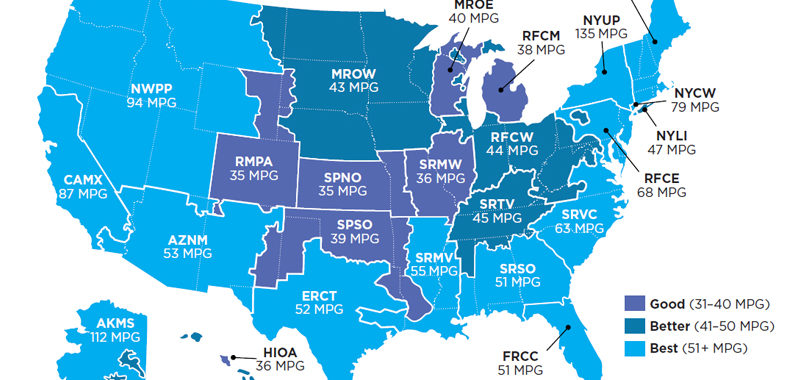Political discussions inevitably lead to debates and statements (possible facts) you are not prepared for, but are nonetheless suspicious of. After a discussion with a few buddies today at a local Starbucks that somehow got focused on the “real environmental impact of gasoline vs electric cars” I decided to do a little more investigating. I didn’t like being somewhat unsure of my position. I wondered, have I simply fallen prey to propaganda from the left? I hoped not.
As I began investigating I read several articles and found an article from The Union of Concerned Scientists, by Rachel Nealer to be very complete and well done. Of course I cannot guarantee my bias played no role, but listen to Nealer, not me and decide for yourself. Basically here is what her research found:
- From cradle to grave, battery-electric vehicles are cleaner.
- EVs are now driving cleaner than ever before.
- EVs will become even cleaner as more electricity is generated by renewable sources of energy.
Discussions of Battery Electric Vehicle (BEV) are complicated. Nealer’s article points out that “Although a BEV has no tailpipe emissions, the total global warming emissions from operating it are not insignificant; they depend on the sources of the electricity that charge the vehicle’s batteries and on the efficiency of the vehicle.” The geographic sources of electrical power (within the USA) are a factor so the study compared “26 ‘grid regions’ of the United States—representing the group of power plants that together serve as each region’s primary source of electricity—and we rated each region based on how charging and using an EV there compares with driving a gasoline vehicle”. As research and development continue it is likely that “Emissions from operating electric vehicles are likely to keep falling”.
Vehicle production is the first part of the equation, with BEV production starting somewhat in the hole. It is a fact “due to the materials and fabrication of the BEV lithium-ion battery, … BEV production results in higher emissions than the making of gasoline cars”. However another fact is that over the lifetime of the car this changes and changes significantly. “Replacing gasoline use with electricity reduces overall emissions by 51 percent over the life of the car.” This varies a bit depending on the car size, etc. The bottom line is that both types of vehicles have very negative environmental effects, most of which are common to each, but some are more pronounced in either gas or BEV and a few are completely unique to either gas or BEV vehicle. The bottom line is “the extra emissions associated with electric vehicle production are rapidly negated by reduced emissions from driving” over time.
The article ends with the following positive point on BEVs and a short video worth watching.
“The global warming emissions of manufacturing BEVs are falling as automakers gain experience and improve production efficiency. With a focus on clean manufacturing, emissions could fall even more. There are many ways in which the EV industry might reduce these manufacturing-related emissions, including:
- Advances in manufacturing efficiency and in the recycling or reuse of lithium-ion batteries;
- The use of alternative battery chemistries that require less energy-intensive materials; and
- The use of renewable energy to power manufacturers’ and suppliers’ facilities.”
Gasoline vs Electric—Who Wins on Lifetime Global Warming Emissions? We Found Out
